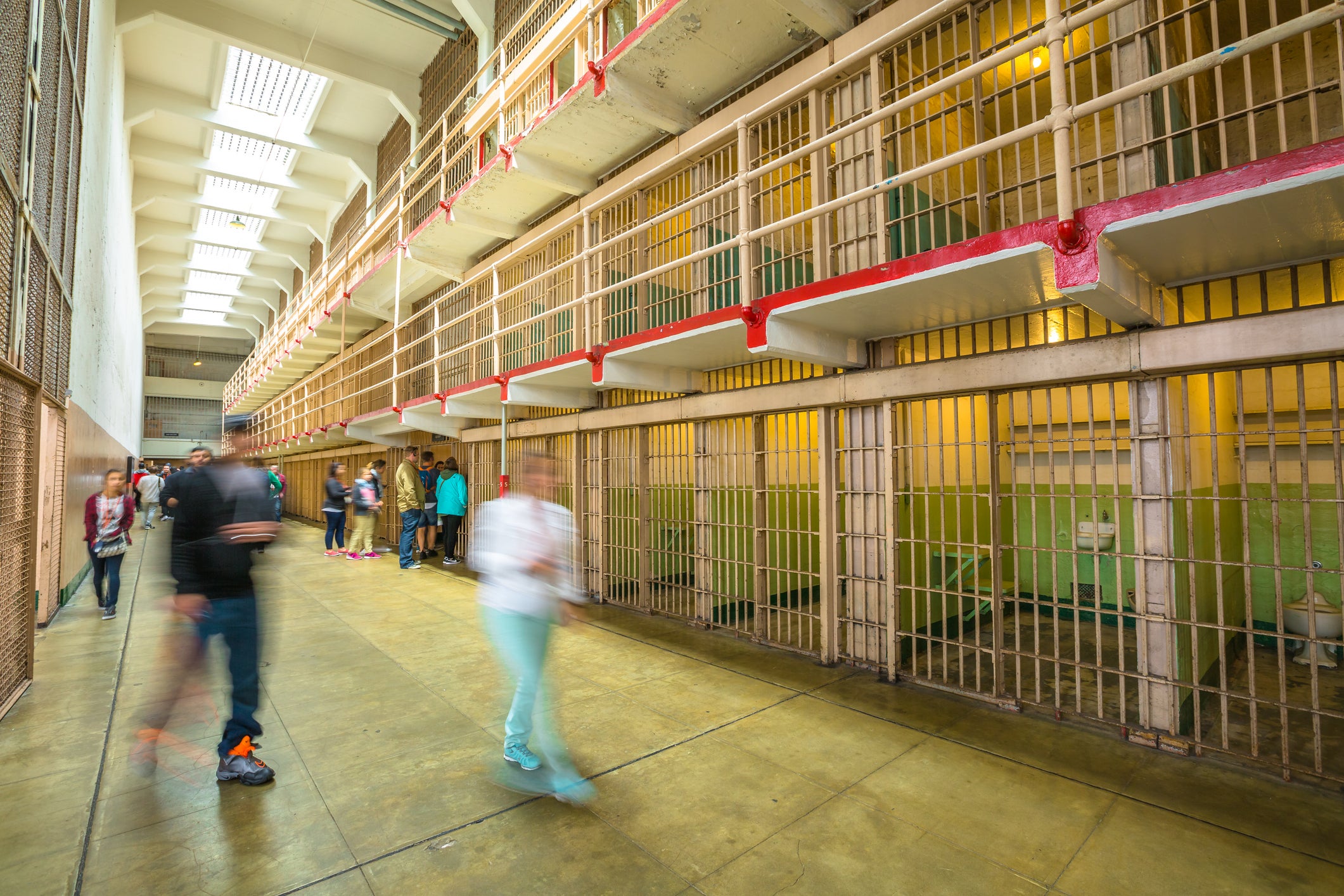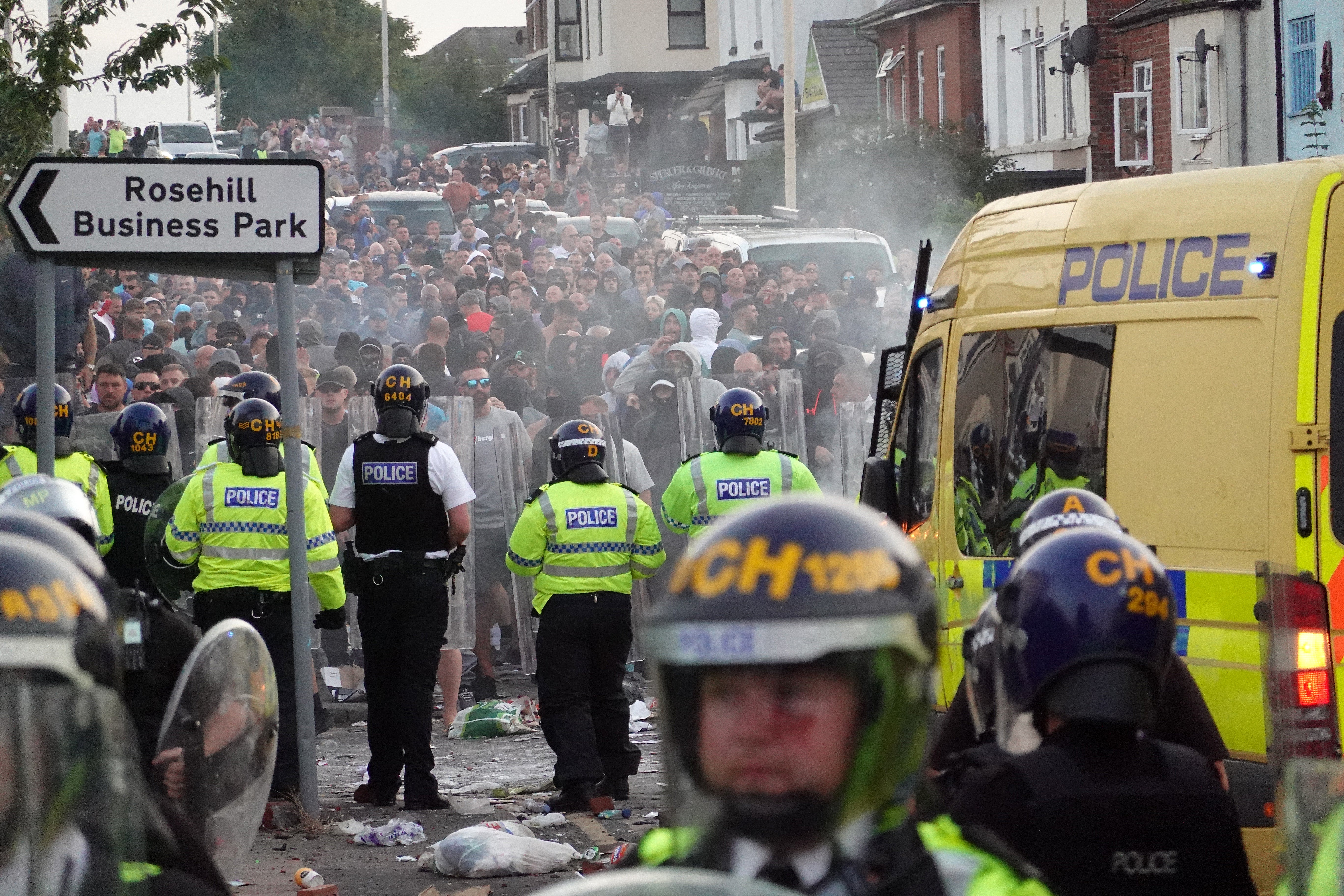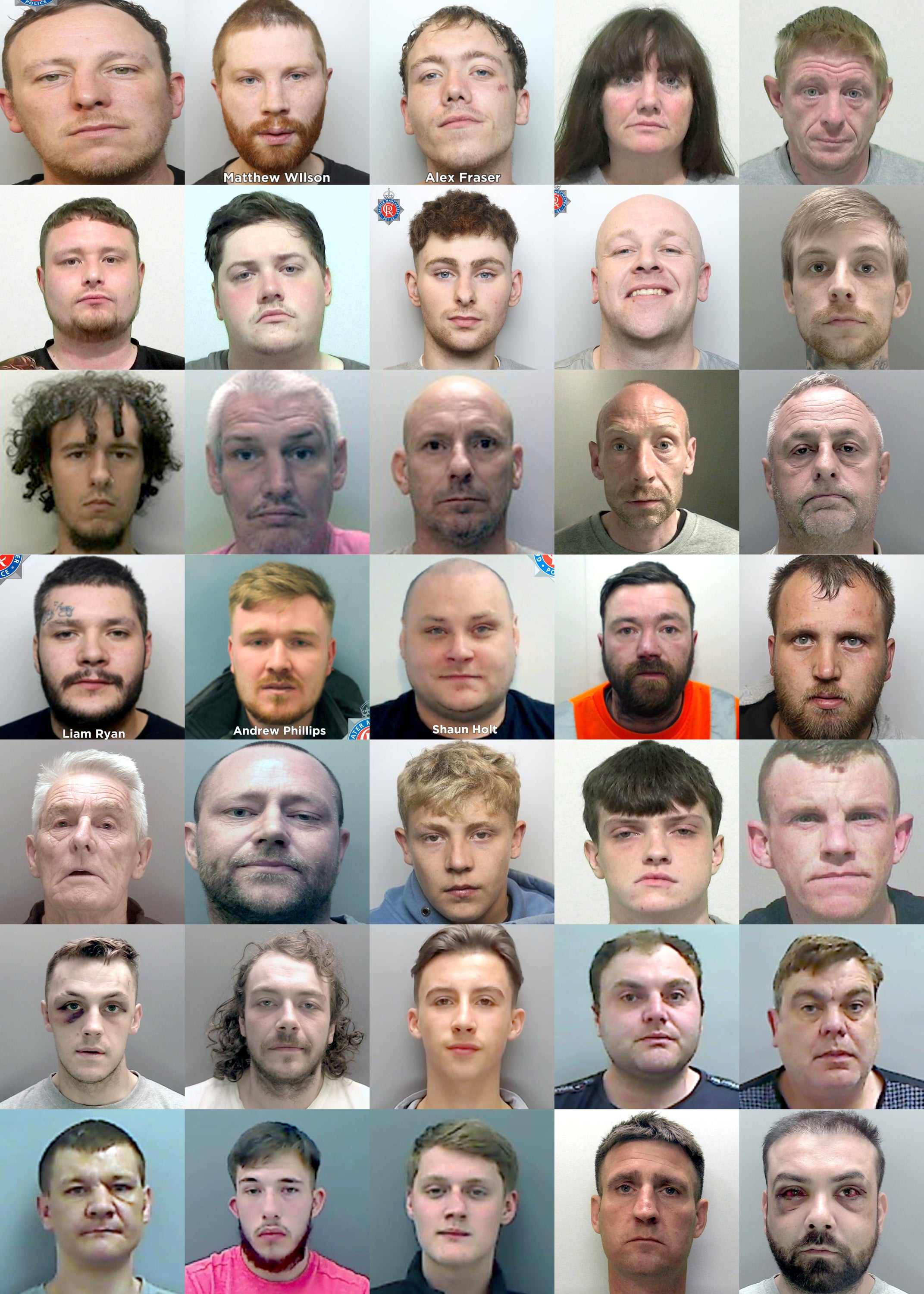Emergency measures to ease prison overcrowding activated as more rioters are sentenced
Operation Early Dawn to help manage short-term prison capacity pressure as justice system in ‘crisis’
The government has triggered emergency measures to tackle prison overcrowding by using police cells after Keir Starmer’s crackdown on rioters heaped pressure on overflowing jails.
Operation Early Dawn will see defendants held in police cells and not summoned to magistrates’ court until a space in prison is available.
The emergency measures, announced by the Ministry of Justice on Monday, will be in place in key locations where scores of rioters caught up in violent disorder have already been jailed – including Merseyside, Manchester, Yorkshire, Cumbria, Lancashire and Cheshire.
The temporary measure comes after recent weeks saw hundreds of people imprisoned in the north of England following the far-right riots, amid longstanding capacity failures. UK prisons have been operating at critical levels for the last several years, often with under 1 per cent capacity.
In a move that justice chiefs warn will result in “justice delayed”, the policy means that defendants waiting for a court appearance in the north of England will be kept in police cells until prison space is available.

Prisons and probation minister Lord Timpson said: “We inherited a justice system in crisis and exposed to shocks. As a result, we have been forced into making difficult but necessary decisions to keep it operating.
“However, thanks to the hard work of our dedicated staff and partners, we have brought forward additional prison places and now introduced Operation Early Dawn to manage the pressure felt in some parts of the country.”
National Police Chiefs’ Council (NPCC) lead for custody, Deputy Chief Constable Nev Kemp, said: “We are working closely with criminal justice system partners to manage demand in the system and ensure that the public are safe.
“Policing will continue to arrest anyone that they need to in order to keep the public safe, including policing protests and events and ensuring that people are arrested as expected.”
After the riots that broke out across England following the stabbing of three young girls in Southport on 29 July, a total of 460 people had appeared in magistrates’ courts in relation to the disorder by the end of Thursday. More than 1,100 people have been arrested so far, with almost 700 of those charged, according to the NPCC.
The government said on Monday that its action to “tackle violent thuggery on our streets” has “exacerbated longstanding capacity issues in our prisons”.

Operation Early Dawn was previously triggered by the Conservative government in May in a bid to tackle overcrowding in jails.
Last month, the Ministry of Justice said violence and self-harm in prison had risen to “unacceptable” levels as overcrowding pushed jails to the “point of collapse”.
Justice secretary Shabana Mahmood announced plans to cut the proportion of the sentence inmates must serve behind bars from 50 per cent to 40 per cent.
The temporary move – which does not apply to those convicted of sex offences, terrorism, domestic abuse or some violent offences – is expected to result in 5,500 offenders being released in September and October.
But the Ministry of Justice said anyone who poses a risk to the public will not be bailed, with the police’s ability to arrest criminals unaffected.

However, the national chairman of the Prison Officers’ Association (POA) warned the measures - which he described as a “one in, one out” system - could lead to police delaying operations, with defendants’ court dates delayed or adjourned at short notice.
Mark Fairhurst told BBC Breakfast on Monday that the most serious offenders would still end up in court and be guaranteed a prison cell, but less serious offenders would either spend longer in police cells or be bailed, leading to “justice delayed”.
But he clarified that this would not mean that some people who would normally go to jail would avoid it.
The chief executive of the Magistrate’s Association has similarly warned the policy will lead to delays in defendants appearing in court.
However, Tom Franklin told BBC Radio 4’s Today programme the situation should ease after 10 September, when thousands of prisoners will be released from jail early under a new system.
The vice president of the Prison Governors’ Association said he is “not sure” how much Operation Early Dawn will even help after “lurching from crisis to crisis for some time”.
Mark Icke added that short-term measures “are not ideal”.
Mr Fairhurst went on to blame the previous Conservative government for overcrowding in “extremely pressured” prisons.
He said: “They closed 20 public sector prisons, they didn’t build enough new prisons, they didn’t create enough prison space and people are serving longer sentences.
“As we’re more overcrowded, there’s less regime we can offer. We don’t have activity spaces for everybody in our care. That leads to frustrations, and frustrations spill over to the frontline. We work in the most hostile environment workplace of anywhere in the world. It’s absolutely horrific.”
The president of the Law Society of England and Wales Nick Emmerson said the crisis facing prisons is a result of “long-term neglect” of the criminal justice system - with the emergency measures likely to impact victims, defendants and solicitors.
“The prisons crisis is just one of many connected problems in the criminal justice system following decades of underfunding and cuts,” he said. “We have seen growing backlogs in the Magistrates and Crown Courts, a shortage of lawyers, judges and court staff and a crumbling court estate. Probation services are still on their knees.
“Government is having to take difficult steps to deal with the crisis it inherited, such as reactivating Operation Early Dawn, which will impact victims, defendants and those working in the system including solicitors.
“In the longer-term, sustained investment is needed across the criminal justice system in order to avoid it collapsing completely.”
